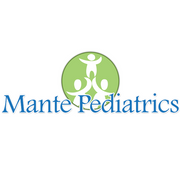
It’s not unusual for a child to get restless or have a short attention span. However, when these behaviors are repetitive, attention-deficit/hyperactivity disorder (ADHD) may be an underlying cause. Estimated to affect more than six million children, ADHD is a common pediatric behavioral condition that impairs a person’s ability to focus. Without proper management, this condition can harm a child’s self-esteem, ability to form relationships, and educational development. If you’re concerned about these risks, here’s a quick guide on how to recognize ADHD in children and what parents can do to help.
What Are the Signs of ADHD in Children?
Children with ADHD typically exhibit signs before 12 years of age. However, not all cases produce the same behaviors. For example, some kids may have symptoms that show a pattern of inattentiveness, while others may exhibit more impulsive and hyperactive behaviors. Some may also fall into both categories at varying levels of intensity.
Some specific signs of ADHD in children include:

- An inability to stay focused during schoolwork, play, conversations, or routine tasks.
- Avoidance of activities that require focused attention, such as playing sports or studying.
- Frequently losing belongings or forgetting instructions.
- Being unable to sit still or perform activities quietly.
- Talking incessantly.
- Regularly interrupting others or acting impatient.
- Chronic fidgeting, such as tapping.
How Do Physicians Make a Diagnosis?
Pediatricians take several steps to diagnose ADHD, beginning with a thorough review of symptoms from those who regularly experience the child’s behaviors—such as parents and teachers. ADHD may be suggested if the doctor notices an ongoing pattern of inattentiveness or impulsivity that is outside the normal level for the child’s age.
Typically, the child will undergo evaluation from a mental health professional to determine that other conditions—such as depression or anxiety—aren’t a cause of the behaviors. At this point, the child may complete continuing performance tests to measure how they behave when told to perform repetitive tasks. The data gathered during these tests can help inform pediatric care providers about the severity of ADHD and how it could best be treated.
How Is It Managed?
The use of stimulant medications is often an effective way to control ADHD symptoms in children. These medications boost the production of brain chemicals that help improve focus. Non-stimulant medications—such as atomoxetine—may also be recommended as an alternative to help balance the child's brain chemistry.
While behavioral therapy doesn’t alleviate symptoms, many children with ADHD find it helpful. Through this psychiatric approach, patients learn how to recognize problematic behaviors and develop healthy strategies for dealing with them.
If you’re concerned about your child’s behavior or development, Mante Pediatrics can help. Serving families in Rock Hill and Chester, SC, this provider offers comprehensive pediatric care in a friendly and supportive environment. Working alongside parents, these pediatricians thoroughly diagnose and treat mental health conditions—including ADHD. To learn more about their balanced approach to children’s health, visit this primary care clinic online. If you’d like to schedule an appointment with a physician, call (803) 385-2075.
About the Business
Have a question? Ask the experts!
Send your question

